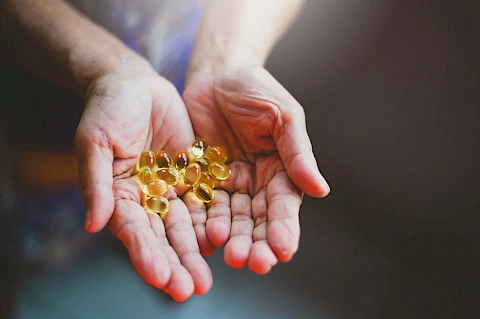
Understanding the health needs of our senior loved ones is essential, especially when it comes to their dietary requirements. One nutrient that often gets overlooked yet plays a crucial role in their well-being is vitamin D. Understanding the optimal amount of vitamin D for seniors, as well as the role it plays in maintaining their health, can help caregivers ensure that their loved ones get the right amount of this important nutrient.
Vitamin D
Vitamin D plays a significant role in the overall health of our bodies. It aids in calcium absorption and supports bone health, a particularly critical aspect for seniors. Furthermore, it bolsters the immune system and can play a role in maintaining a healthy weight and even preventing depression.
For seniors, these benefits are of paramount importance. As we age, bone density naturally decreases, making a calcium-rich diet and appropriate vitamin D intake important factors in preventing conditions like osteoporosis. Additionally, a robust immune system is vital for seniors, who may be more susceptible to illnesses.
Recommended Vitamin D Intake
Health organizations typically recommend a daily vitamin D intake of 800 IU for seniors. However, these figures may vary based on individual factors, such as health status and lifestyle. Family caregivers must consult with a healthcare provider who can provide personalized advice based on the senior's needs and circumstances.
Risks of Vitamin D Deficiency
Vitamin D deficiency presents several risks, with symptoms ranging from bone pain and muscle weakness to more serious complications such as cardiovascular conditions. Seniors might be particularly susceptible to deficiency due to several factors. For instance, they may have less sunlight exposure, a key source of vitamin D, due to limited mobility or lifestyle. Additionally, the body's ability to synthesize vitamin D from sun exposure diminishes with age.
Ensuring Adequate Vitamin D Levels for Seniors
Ensuring a proper vitamin D level can mean integrating several strategies. First, safe exposure to sunlight can help the body naturally produce vitamin D. About 10-30 minutes of sun exposure twice a week can be adequate for some people. However, you must consider factors like skin type, geographic location, and the time of year.
A diet rich in vitamin D can also be beneficial. Foods such as fatty fish (like salmon and mackerel), beef liver, cheese, and egg yolks are high in vitamin D. Furthermore, many foods, such as milk and cereal, are fortified with the vitamin.
For seniors with dietary restrictions, navigating these food sources can be challenging. In such cases, discussing individual dietary needs with a dietician or healthcare provider can be beneficial. Always consult your loved one's healthcare provider before making major dietary changes.
Vitamin D Supplementation
If you cannot achieve sufficient vitamin D levels through sunlight and diet, supplementation might be necessary. It's important to remember that while supplements can be purchased over the counter, they should not be taken without consulting a healthcare professional to avoid potential risks, such as toxicity from overuse.
In selecting a supplement, quality matters. Choose reputable brands and ensure the supplement is third-party tested for quality and purity. Moreover, follow the prescribed dosage and maintain regular check-ins with the healthcare provider to ensure the supplementation is effective and not causing any adverse effects.
Senior Helpers South Bend Offers Assistance in Caring for Seniors
For those living in South Bend, Elkhart, Goshen, and Mishawaka who require assistance in managing the health and dietary needs of their senior loved ones, Senior Helpers South Bend is here to help. We are committed to providing quality care and support that enhances the lives of seniors and offers peace of mind for their families. Contact us today to learn more about our services.